

ReachOut.com USA for teens: Information and help about mental health issues such as being bullied, low self esteem, committing suicide and cutting yourself. S CURRENT TOPICS IN PSYCHOLOGY. The psychology of moral reasoning. Judgment and Decision Making, vol. 3, no. 2, February 2008, pp. 121-39.
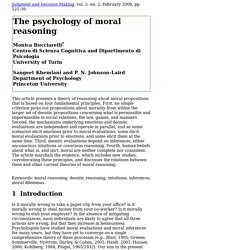
This article presents a theory of reasoning about moral propositions that is based on four fundamental principles. First, no simple criterion picks out propositions about morality from within the larger set of deontic propositions concerning what is permissible and impermissible in social relations, the law, games, and manners. Second, the mechanisms underlying emotions and deontic evaluations are independent and operate in parallel, and so some scenarios elicit emotions prior to moral evaluations, some elicit moral evaluations prior to emotions, and some elicit them at the same time.
Ivy League Education at Home Part 6: Moral Reasoning. Did you know that many classical colleges dedicate entire courses to the art of decision making?

The ability to make correct choices – to distinguish between good and bad possibilities – is so important that liberal arts programs require every student to complete work in this area. In matters that count politically and personally, most college-aged learners have already made up their minds. The Depravity Scale. Now, you can have a say in the criminal sentences of tomorrow. Please do. It only takes about 20 minutes to complete. Whether you work within the system or not, we need your input to help distinguish those crimes that are truly the worst of the worst.
To use an existing Depravity Scale login or finish a partially completed survey: Signal Detection Theory. The starting point for signal detection theory is that nearly all reasoning and decision making takes place in the presence of some uncertainty.
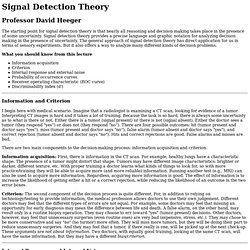
Signal detection theory provides a precise language and graphic notation for analyzing decision making in the presence of uncertainty. The general approach of signal detection theory has direct application for us in terms of sensory experiments. Free Personality Tests, Psychological Questionnaires, Self-Awareness Tools and Much More- psych-it.com.au. Reinventing Your Life: The Breakthrough Program To End Negative Behaviour And Feel Great Again: Amazon.co.uk: Jeffrey E. Young, Klosko. Schema Therapy in Practice: An Introductory Guide to the Schema Mode Approach: Amazon.co.uk: Arnoud Arntz, Gitta Jacob. Creative Expression Activities for Teens: Exploring Identity through Art, Craft and Journaling: Amazon.co.uk: Bonnie Thomas. Book Description Release Date: 15 Jun 2011 | ISBN-10: 1849058423 | ISBN-13: 978-1849058421.
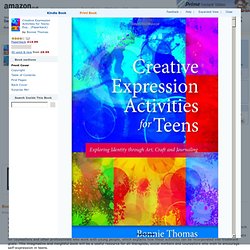
Free and Open Psychological Assessment Tools. Free Resources for Therapists to Share: Psychology Tools. Psych Central: Psychology: Assessment and Testing. Currently, the terms heinous and depraved are used in courts to allow judges and juries to assign more severe sentences; yet, there is no standardized definition for these legal terms leaving triers of fact to decide on the basis of mere emotions, which can be easily manipulated.
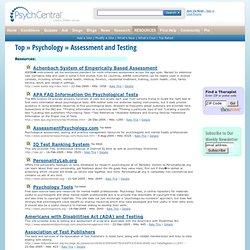
To combat this arbitrariness in sentencing, Dr. Michael Welner, a forensic psychiatrist and associate professor at NYU, has designed the Depravity Scale -- an objective, evidence-based instrument that standardizes the specific intents, actions and attitudes according to public consensus. The Depravity Scale is undergoing validation research at a secure site (www.depravityscale.org), where participants are asked to weigh in on the extent to which 26 items are representative of depravity.
The next phase, set to kick off next month, will engage the questions of item-ranking and weighting for the final instrument, which will one day be used as a guideline for juries at the sentencing phase of trials. Free Personality Tests, Psychological Questionnaires, Self-Awareness Tools and Much More- psych-it.com.au. GET.gg Free Downloads - Therapy Worksheets.
Positive Psychology Video Courses, Exercises & Resources. Book List. Centre for Crime and Justice Studies: Home Page. Www.gse.harvard.edu/~ddl/articlesCopy/Calverley_EtAl_1995_pp195-213.pdf. Vaguely Rude. Personal views of a psychologist and illusionist. The Not So Big Society. Www.stoa.org.uk/topics/evil/Evil, Mad or Bad.pdf. Evil,%20Mad%20or%20Bad. Hare Psychopathy Checklist. The Hare Psychopathy Checklist-Revised (PCL-R) is the psychological assessment most commonly used to rate psychopathy.[1] It is a 20-item inventory of perceived personality traits and recorded behaviors, intended to be completed on the basis of a semi-structured interview along with a review of 'collateral information' such as official records.
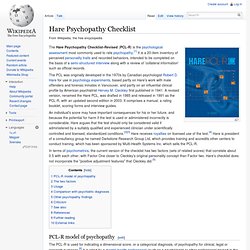
The PCL was originally developed in the 1970s by Canadian psychologist Robert D. Hare for use in psychology experiments, based partly on Hare's work with male offenders and forensic inmates in Vancouver, and partly on an influential clinical profile by American psychiatrist Hervey M. Cleckley first published in 1941. What? Psychological Trauma Article - Zoe Lodrick - Sexualised Trauma Specialist. Psychological Trauma – What Every Trauma Worker Should Know Zoe Lodrick MSc.
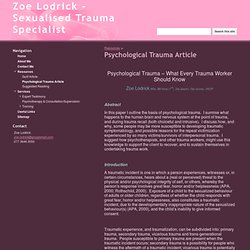
BA Hons (1st). Dip (psych). Dip (couns). Bullying – A Rational Choice. It seems like everybody is worried about bullying.
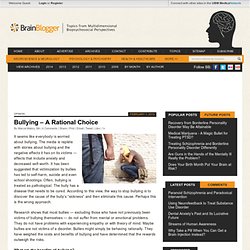
The media is replete with stories about bullying and the negative effects it has on its victims — effects that include anxiety and decreased self-worth. It has been suggested that victimization by bullies has led to self-harm, suicide and even school shootings. Often, bullying is treated as pathological. The bully has a disease that needs to be cured. Implicit Association Test. It is well known that people don't always ‘speak their minds’, and it is suspected that people don’t always ‘know their minds’.

Understanding such divergences is important to scientific psychology. This web site presents a method that demonstrates the conscious-unconscious divergences much more convincingly than has been possible with previous methods. This new method is called the Implicit Association Test, or IAT for short. We will ask you (optionally) to report your attitudes toward or beliefs about these topics, and provide some general information about yourself. BPS. Browse. The Perfect Hero and the Perfect Heroine: Dark and Light Sides of the Anima & Animus. By Carolyn Kaufman, PsyD Every archetype has a positive and a negative side. As we saw in the Three-Dimensional Villains article, the villain is the negative aspect of the shadow, while creativity is the positive. To further complicate things, everyone has both anima and animus—the anima is just more evident in the male and the animus in the female.
The Influence of the Animus: Women’s Heroes and Heroines. Jungian Archetypes of the Mythic Unconscious. Study debunks notion that men and women are psychologically distinct. By Eric W.

DolanMonday, February 4, 2013 17:33 EDT A first-of-its-kind study to be published in the February issue of the Journal of Personality and Social Psychology has dealt a devastating blow to the notion that men and women are fundamentally different when it comes to how they think and act. “Although gender differences on average are not under dispute, the idea of consistently and inflexibly gender-typed individuals is,” Bobbi J. Carothers of Washington University in St. Louis and Harry T. Research. Rosenhan experiment. Rosenhan's study was done in two parts. The first part involved the use of healthy associates or "pseudopatients" (three women and five men) who briefly feigned auditory hallucinations in an attempt to gain admission to 12 different psychiatric hospitals in five different States in various locations in the United States.
All were admitted and diagnosed with psychiatric disorders. After admission, the pseudopatients acted normally and told staff that they felt fine and had not experienced any more hallucinations. All were forced to admit to having a mental illness and agree to take antipsychotic drugs as a condition of their release. The average time that the patients spent in the hospital was 19 days. The study concluded "it is clear that we cannot distinguish the sane from the insane in psychiatric hospitals" and also illustrated the dangers of dehumanization and labeling in psychiatric institutions.
The pseudopatient experiment[edit] The non-existent impostor experiment[edit] Notes. Psychology. Web.mit.edu/comm-forum/mit4/papers/Kiernan.pdf. Racism: Genetic or Learned? « BroadBlogs. Evolutionary psychology says racism is in our genes — a genetic adaptation that helps groups survive by favoring themselves over others. Skin color cues us in to who’s “in” and who’s “out.” (Yet the most prosperous areas of the world are those that cooperate and trade with each other?) When I explain the theory, my students are appalled. (Though they readily accept evolutionary psych when it comes to explaining supposed sex differences.) I once wrote a comment questioning evolutionary psychology on Slate and got the following response: And what about all of those studies on doctors that found they treat patients differently because of race?
The Recurrence of an Illusion: The Concept of “Evil” in Forensic Psychiatry. James L. Knoll IV, MD + Author Affiliations Address correspondence to: James L. Knoll, IV, MD, SUNY Upstate Medical University, 750 East Adams Street, Syracuse, NY 13210. Psychology. Mind -Knowledge. Speak, Memory by Oliver Sacks. Senior Moments by Golf Brooks - with Lyrics Closed Captioned. Jung. Archetypes.